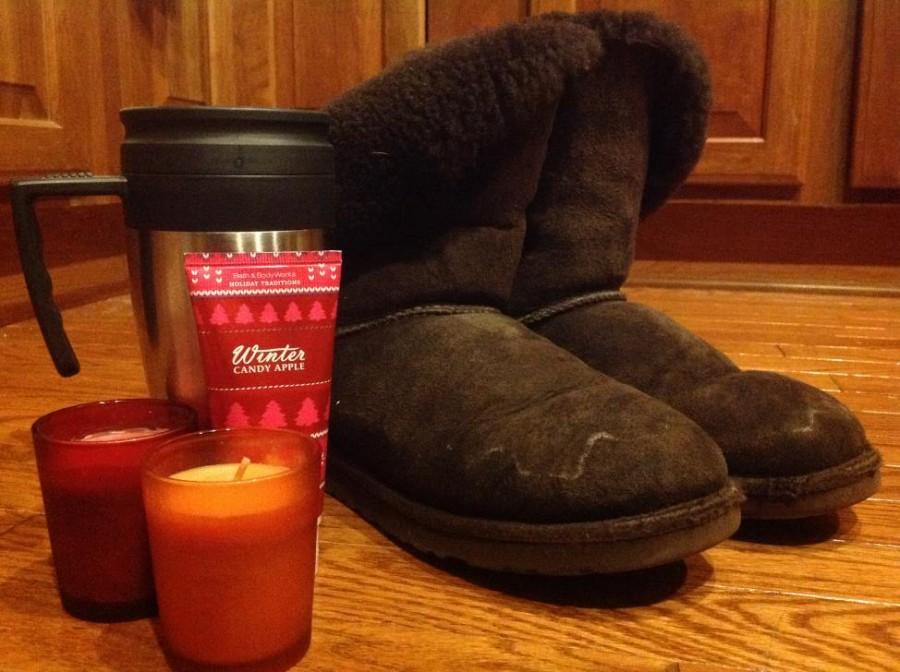Back to Basics
Your friend strolls into Mercy’s cafeteria one morning holding a Pumpkin Spice Latte from Starbucks and throws herself down into the chair next to you.
“Look at me,” she says, pointing to her coffee cup. “Basic white girl!”
You have probably witnessed a scene like this before. The word “basic” is becoming an ever-more-popular slang term. Young people hear it so much that they barely notice when it is used, and this causes them to simply accept it without realizing what it means.
According to a Google Trends map of its usage, “basic” first entered the vernacular around 2011, but as a term used in African American culture to refer to someone who is pretending to be someone they’re not. Today, “basic” is mostly used by middle-class white people to refer to other middle-class white people whose tastes and habits conform to social and cultural stereotypes. The word “basic,” however, is not as innocent as it might seem. If its usage is analyzed, it reveals disturbing undercurrents in society.
A recent Buzzfeed article lists drinking Pumpkin Spice Lattes, Instagramming filtered photos of fall foliage and tagging them #thankful, burning fall-scented candles, using seasonal lotion, and wearing Ugg boots as things that are “basic.” There is a reason that these are all common behaviors of females, especially females of the millennial generation: the word “basic” is overwhelmingly directed at women.
“Basic” is blatant gender stereotyping, especially when the phrase “white girl” is thrown in. It is a way of dismissing the things that today’s women enjoy as trivial and unimportant. Women who are “basic” are generally women who have embraced being a woman, and society has mistakenly labeled this as petty and boring.
Gender discrimination is not the only hornet’s nest that the word “basic” has stirred up. People label as “basic” most consumer products commonly purchased by the middle class, such as Ugg boots, Target leggings, Starbucks coffee, and Bath & Body Works lotion.
These products and brands are purchased by consumers because they are readily available and society has dictated that they are in style, not because consumers are “basic.” The term, however, continues to be used by insecure middle-class consumers to distance themselves from their situation by enclosing the middle class in an economic and cultural box and stepping outside of it. It is a way for consumers who are nervous about their own position within the economy and within society to reassure themselves by disparaging the tastes and habits of others, and it is clearly demonstrative of an acute class anxiety within the middle class.
The third demon that has been raised by the term “basic” is centuries old, and it is most clearly demonstrated when “basic” is used in the phrase “basic white girl.” Most millennials use this label, and they do it without realizing that they are both coining a racial stereotype and expressing hidden racial tensions in our society. Many white young women even call themselves “basic white girls.” This indicates that the saying is a way for white people to separate themselves from African American people in a country that is rapidly becoming more racially integrated.
Millennials are often perceived as the most racially tolerant members of our society, but their frequent use of the phrase “basic white girl” proves that we still have work to do if our goal is to produce a progressive, tolerant, and open-minded generation.
Perhaps the most obvious indication of the use of the word “basic” is a growing fear of conformity. People who grew up in the 1980s all knew the same popular songs, but there are no universal songs or artists for today’s young people: Millennials have noticed the growing conformity of society and are straining against it by purposely listening to obscure music. This is also the reason that they are so enamored with the word “basic.” It allows them to place themselves outside the mainstream by labeling someone else as stereotypical and therefore unoriginal.
Mercy has its own unique version of “basic.” The “basic” Mercy girl wears her hair in a “Mercy bun”, buys Kickin’ Chicken every chance she gets, eats constantly, and is always in Tech for computer or iPad repairs. This is by no means a bad thing: who doesn’t sport a Mercy bun every once in a while? The thing Mercy must look out for is allowing its form of “basic” to evolve into something as ugly as the “basic” used commonly by the rest of society.
Next time you get the urge to make your Snapchat story a photo of you with a Starbucks latte and title it “basic white girl,” think about what you are really saying and the worrying things it reveals about the society you live in.

